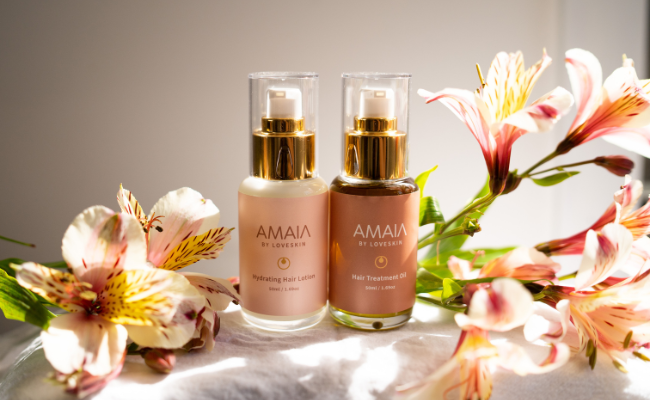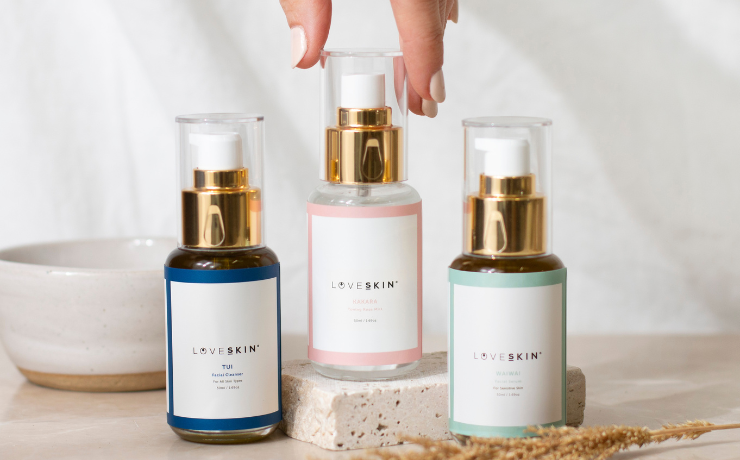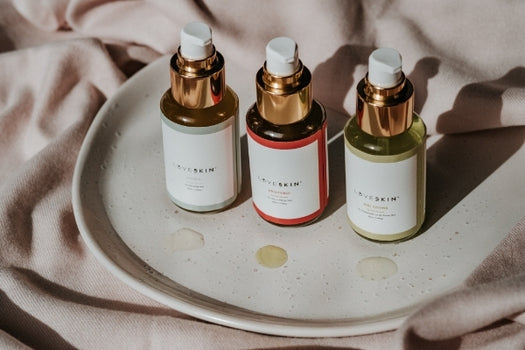It’s Not Your Skin, It’s Your Skincare
Are you confused by your skin? Do you suffer from breakouts or acne that you just can’t seem to completely shake? Jo shares a fresh take on problem skin and teaches us how to heal acne once and for all.
This article was originally written for Oh Natural NZ and published on their blog.
Many people think, that by constantly cleaning and exfoliating our skin we can reveal fresh, healthy cells hidden beneath the surface. We’ve also been taught that if we’re suffering from acne or breakouts we need to keep our skin clean, by washing it and stay away from oil in our skincare.
The fundamental error with this approach is that we’re actually destroying the skin’s natural protection mechanisms. You see, although the skin’s outer layer is made up of dead cells, they actually serve an important function – before they die they produce a protein which protects the skin from bacteria and locks in moisture. Furthermore, the skin is coated by what is known as the acid mantle, a delicate balance of natural oils and sweat, which deters bacteria and prevents acne and breakouts.
When you use soap on your skin you can actually break down and destroy it’s natural protection mechanisms.
You know that crunchy feeling you get after washing your face with soap? That is occurring because tiny cracks in your skin’s surface appear where water has been able to sneak underneath, causing the cells underneath to become swollen and irritated.
So! What does all this mean for your breakouts or acne?
When skin is balanced, it heals, so it’s good to use products which restore, replenish and nourish your skin to help heal it, which then enables it to heal the acne or any other symptoms of skin imbalance.
How do you do this?
1. Take soap out of your routine…
…and replace it with an oil cleanser, such as LOVESKIN’s Tui Facial Cleanser. As I’ve already mentioned, soap strips the skin of it’s protective layer. Our oil works by naturally attracting excess oil in your skin and mobilising dirt and toxins, whilst respecting the skin’s acid mantle. It supports the skin’s natural exfoliation process too, preventing clogged pores and reducing enlarged pores.
2. Get rid of your chemical toners.
We have been lead to believe that a toner closes your pores, to prevent dirt and bacteria getting in before we apply our moisturiser. However astringent, chemical toners are very aggressive and also deplete your skin’s acid mantle. Our LOVESKIN Rose Mist is a gentle blend of Damascena Rose petals steeped in water, which provides additional moisture to the skin, without doing any damage.
3. Hydrate properly.
All of this “skincare” can leave our skin slightly dry. Remember one of the functions of the outer layer of your skin, is to lock in moisture. If this is compromised your skin isn’t able to retain moisture and it becomes dehydrated. When you use a natural serum your skin is able to process the ingredients more efficiently, plus it helps return the skin’s balance. You’ll notice the glow returns to your skin almost immediately.
What to look out for:
Often when people have problem skin and they switch to our LOVESKIN rituals they may continue to experience breakouts for a couple of months afterwards.
Remember this is not a quick fix, this is a restoration of the health of your skin which will return your skin to health for the rest of your life.
Vitamin deficiencies have also been proven to be correlated with acne. You can read more about this perspective in an expert roundup article, featuring our founder, Joanna Lehndorf, here: 31 Beauty Experts Reveal If Vitamins Can Treat Acne.
The introduction of the new skincare routine doesn’t cause breakouts. Breakouts may continue to occur because your skin’s protective layer takes at least three months to properly heal. So if you experience a breakout soon after switching to a new routine it’s very important that you resist the urge to scrub it. That will simply restart the cycle again. Instead, ride out the changes and you’ll notice within a couple of months that the breakouts become less aggressive, and heal more quickly. After three months they will subside altogether.
Finally, with summer here our skin produces more natural oil, which means you need to reduce the amount of additional moisture you’re adding to your skin. In winter the weather leaves our skin thirsty for more, in summer we need to be more mindful not to overdo it.



